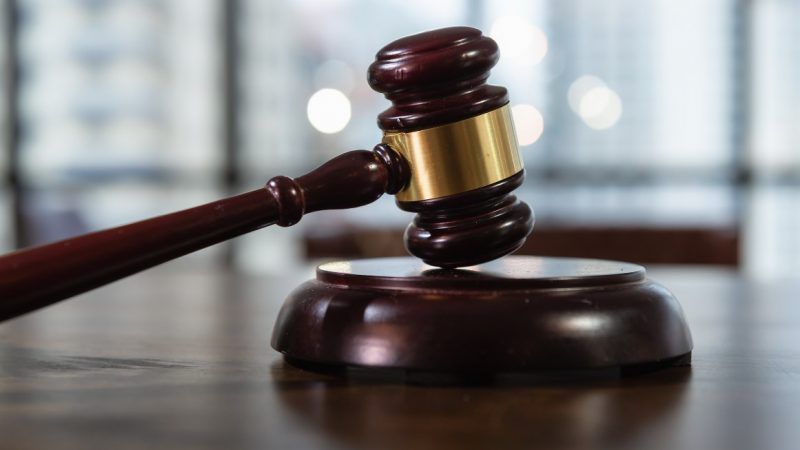This Cop Wants Qualified Immunity for Fatally Shooting a Passenger in a Fleeing Vehicle
The unfolding legal saga of City of Hayward v. Stoddard-Nunez

On March 3, 2017, in Hayward, California, Officer Manuel Troche fired nine bullets at the fleeing vehicle of a suspected drunk driver, killing a passenger named Shawn Joseph Jetmore Stoddard-Nunez. An excessive force lawsuit filed by the dead man's brother has become the latest front in the ongoing legal battle over the controversial doctrine of qualified immunity.
The brother, Jessie Stoddard-Nunez, suffered an early defeat at the hands of the U.S. District Court for the Northern District of California, which said in 2018 that even if Troche was guilty of using excessive force, he was still shielded from being sued because that potential misdeed did not violate "clearly established" law. Under the U.S. Supreme Court's qualified immunity doctrine, police officers (and other state actors) are entitled to immunity from civil suits arising from their official conduct so long as the conduct that they're being sued over "does not violate clearly established statutory or constitutional rights."
Stoddard-Nunez then appealed that loss to the U.S. Court of Appeals for the 9th Circuit, which took a different view of the matter in 2020. "At the time of the incident," the appeals court noted, "it was clearly established that officers are not entitled to qualified immunity for shooting at an individual in a fleeing vehicle that does not pose a danger to them or to the public."
The 9th Circuit also cast serious doubt on the reliability of the officer's account of the incident. For example, Troche claimed that he only fired at the vehicle when it veered straight at him. But "the coroner noted that the fatal bullet entered Shawn's right shoulder and passed through the side of his neck," the 9th Circuit pointed out, and "photographs of the front and rear passenger doors of the Honda Civic show bullet holes in the side and rear of the car."
Who to believe? The 9th Circuit said that it should be left up to a jury to weigh the evidence. "A reasonable trier of fact could examine the photographs and conclude that Officer Troche fired his gun from the side and rear of Parkman's car," the court said. And "a jury could conclude that at least one of the photographs depicts bullet holes inconsistent with Officer Troche's account that he fired his gun at only the front of the car." In other words, let the lawsuit proceed to trial.
The saga is not over yet. Last month, Troche and the city of Hayward petitioned the Supreme Court to reverse the 9th Circuit's decision, asserting that the appeals court failed "to provide anything more than lip service to this Court's" qualified immunity precedents.
The Supreme Court receives somewhere around 7,000–8,000 such petitions each term. We'll find out sometime in the coming months if it decides to take this one up.


Show Comments (150)